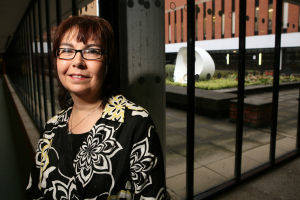Genetics ‘cloud’ opportunities for researchers and clinicians
08 Sep 2011
Gene sequencing and analysis could be dramatically speeded up, leading to patients receiving a quicker and more accurate diagnosis, thanks to research led by Eagle Genomics Ltd.

Using cloud computing technology, the researchers have found they can slash the amount of time it takes to store the huge amounts of information produced when individual genes are sequenced and analysed.
Whereas at the moment this process can take up to three months, the scientists believe their new technique could mean results are produced in about a week.
Eagle Genomics, a leading open-source bioinformatics service provider, is carrying out the research in collaboration with The University of Manchester, and Cytocell Ltd., with assistance from NGRL, based at the Central Manchester University Hospitals NHS Foundation Trust, and the NIHR Manchester Biomedical Research Centre. The £500,000 project is part-funded by the UK’s national innovation agency, the Technology Strategy Board.
Access to the information analysed and stored by the cloud will enable medical researchers who are developing and testing new treatments to compare large amounts of information and find common genetic links.
The technology will also help clinicians to look at an individual patient’s genetic make-up to aid diagnosis and ongoing treatment.
Rather than simply testing a patient for one suspected condition, using the cloud technology could allow clinicians to test for a much wider range of complaints.
Currently, the NHS IT systems do not have the resources to cope with the huge demands required. The cloud system can be accessed from a separate site, away from hospitals, freeing up space.
The project will build upon the success of the Taverna Workflow Management System software developed by Professor Carole Goble’s myGrid team at The University of Manchester. Eagle Genomics will work with the University to adapt Taverna to allow non-IT experts to easily add and extract information and share it with their colleagues.
“Taverna is ideal for this project because it allows you to systematically automate the analysis processes of expert geneticists and make them easily available for other to use at the press of a button”, said Professor Andy Brass of The University of Manchester.
Example applications identified and described by NGRL and Cytocell will provide a significant and valuable resource to help develop and demonstrate the efficacy of the resulting system.
“Genetic sequencing is an increasingly important diagnostic tool as well as being fundamental to many areas of research,” said Professor Graeme Black, Director of the NIHR Manchester Biomedical Research Centre and a consultant at Manchester Royal Eye Hospital. “By storing genetic data in the ‘cloud’ indefinitely, we can use it for research studies and also to help clinicians to decide if medical conditions, that patients develop at any stage, may be linked to their genes.”
Abel Ureta-Vidal, CEO of Eagle Genomics Ltd., added: “Thanks to funding from the Technology Strategy Board, this project is looking at ways in which genetic data can be securely and confidentially stored, accessed and analysed only by approved users.”
The project, which started in July 2011, is on target for completion of a fully functional system with an initial selection of analyses available by December 2012.
